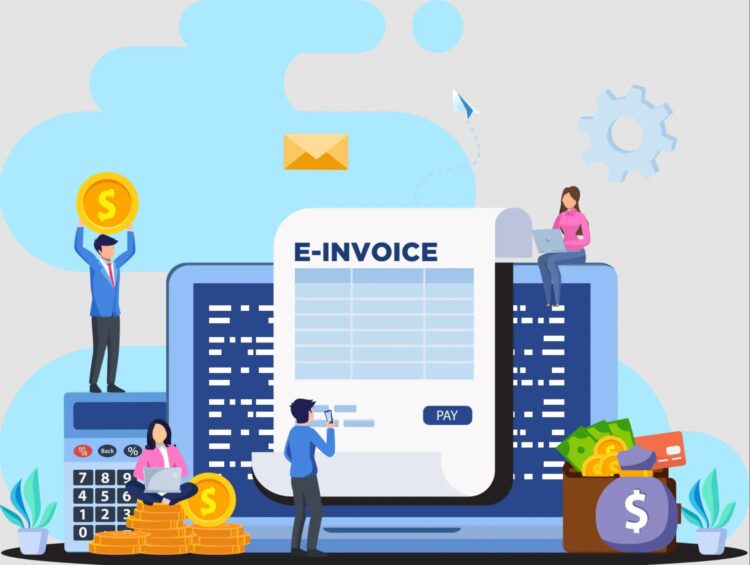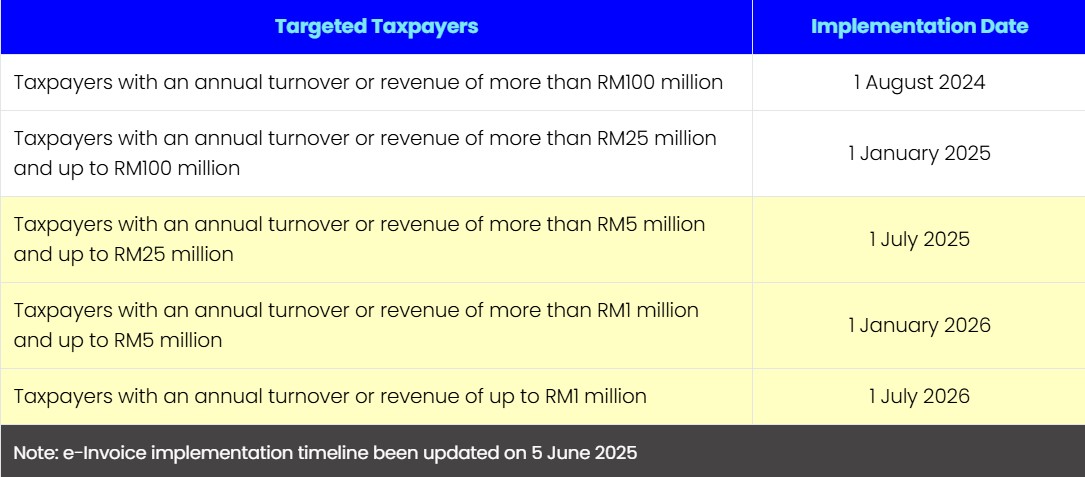The Inland Revenue Board (IRB) has announced a revised timeline for the implementation of e-invoicing, providing relief to micro, small, and medium enterprises (MSMEs) in Malaysia. It was originally scheduled to be fully implemented by the 1st of July 2025.
New E-Invoicing Implementation Schedule
The updated schedule is as follows:
-
Businesses with annual revenue between RM5 million and RM25 million: Mandatory e-invoicing implementation remains on July 1, 2025.
-
Businesses with annual revenue between RM1 million and RM5 million: Implementation deferred to January 1, 2026.
-
Businesses with annual revenue between RM500,000 and RM1 million: Implementation deferred to July 1, 2026.
-
Businesses with annual revenue below RM500,000: Exempted from e-invoicing for the time being.
This decision acknowledges the need for MSMEs to have sufficient time and preparation to comply with the mandatory implementation.
Grace Period and Compliance Measures
The IRB has also introduced a six-month grace period following the mandatory implementation date for each respective phase. During this period:
-
Businesses are allowed to issue consolidated e-invoices.
-
Any information can be input in the “Description of Products or Services” field.
-
A consolidated e-invoice can be issued even if a buyer requests separate invoices.
Additionally, businesses will not face enforcement actions under Section 120 of the Income Tax Act 1967 for non-compliance offences, provided they comply with the consolidated e-invoice requirements.
Post-Grace Period Requirements
Starting January 1, 2026, businesses involved in e-invoicing implementation must issue e-invoices for every sale of goods or services exceeding RM10,000. Consolidated e-invoicing will no longer be permitted beyond this date.



